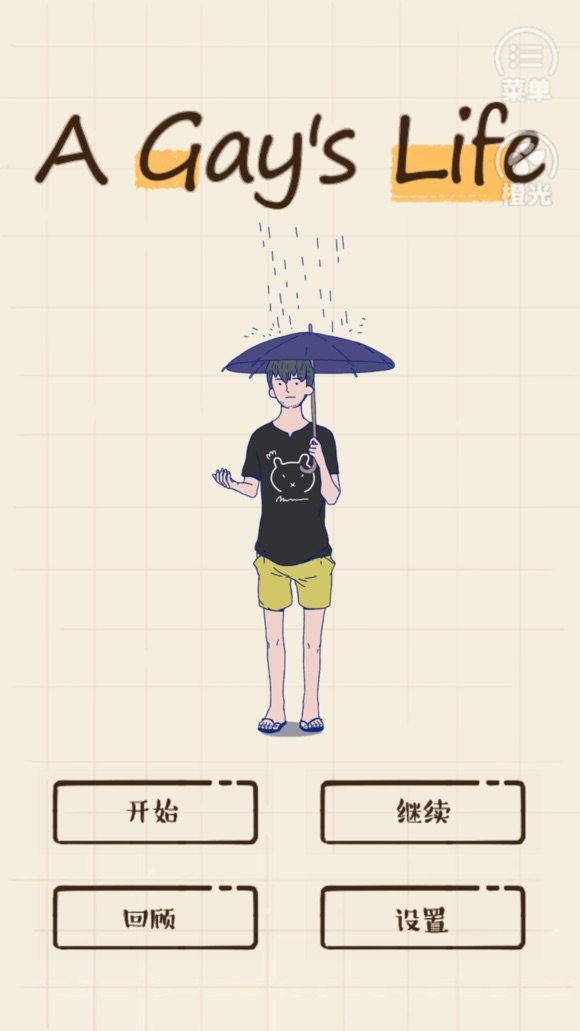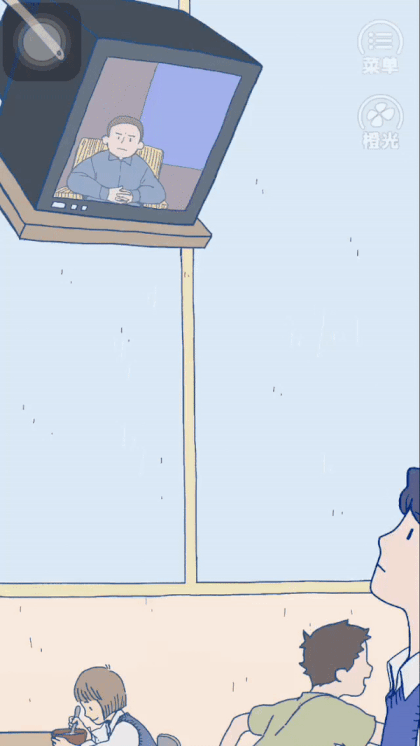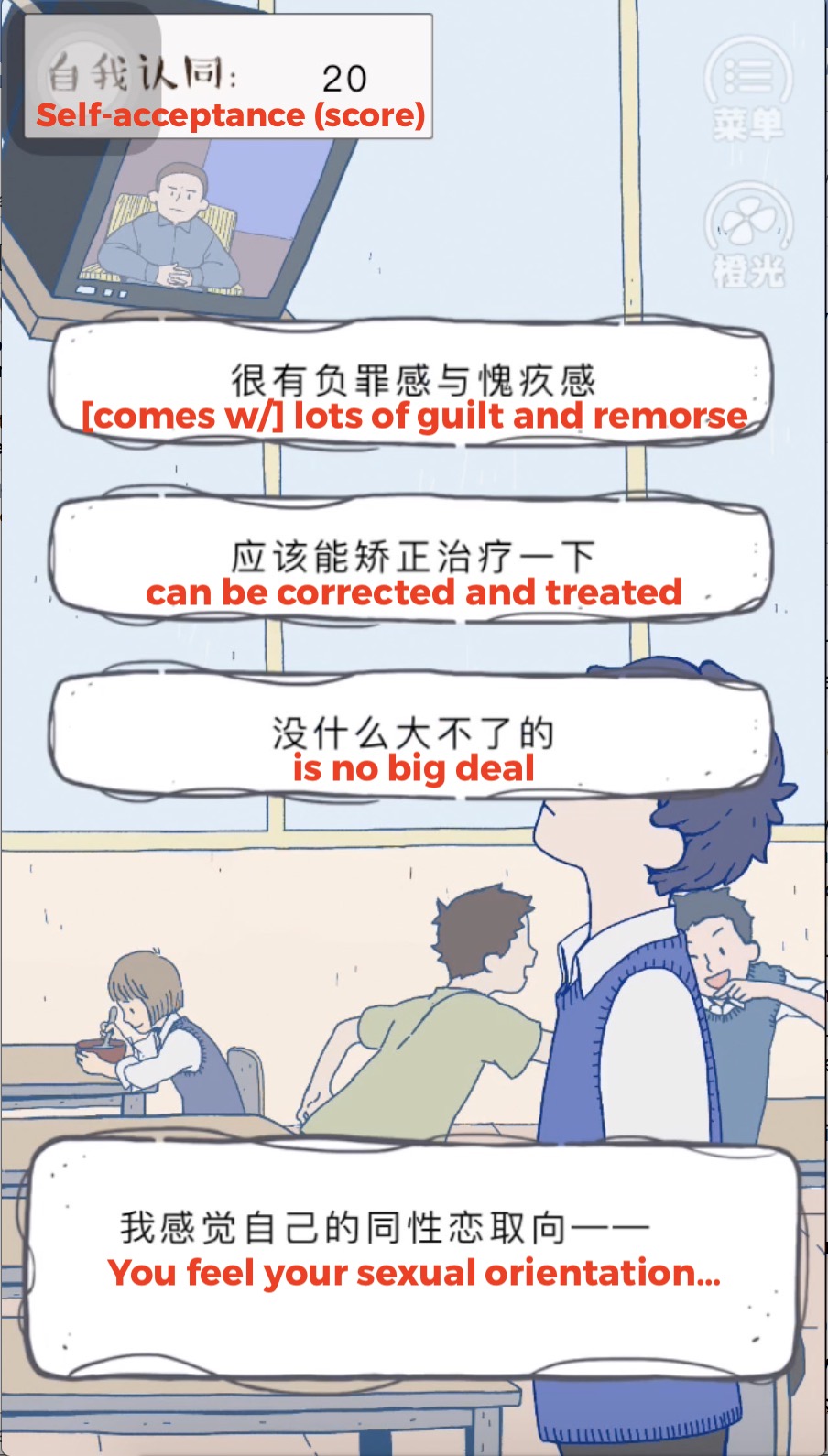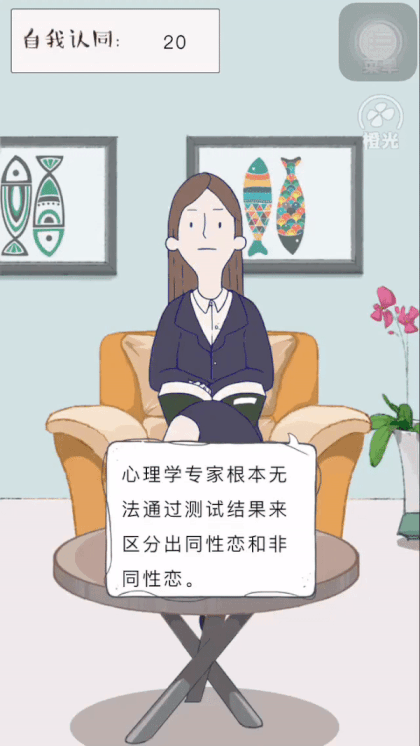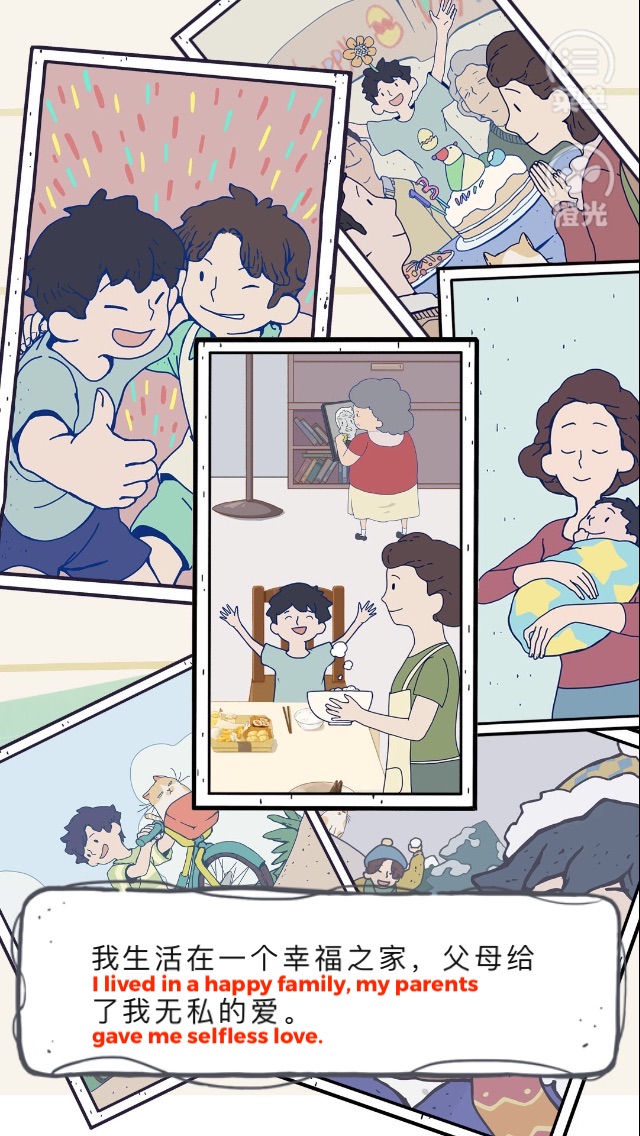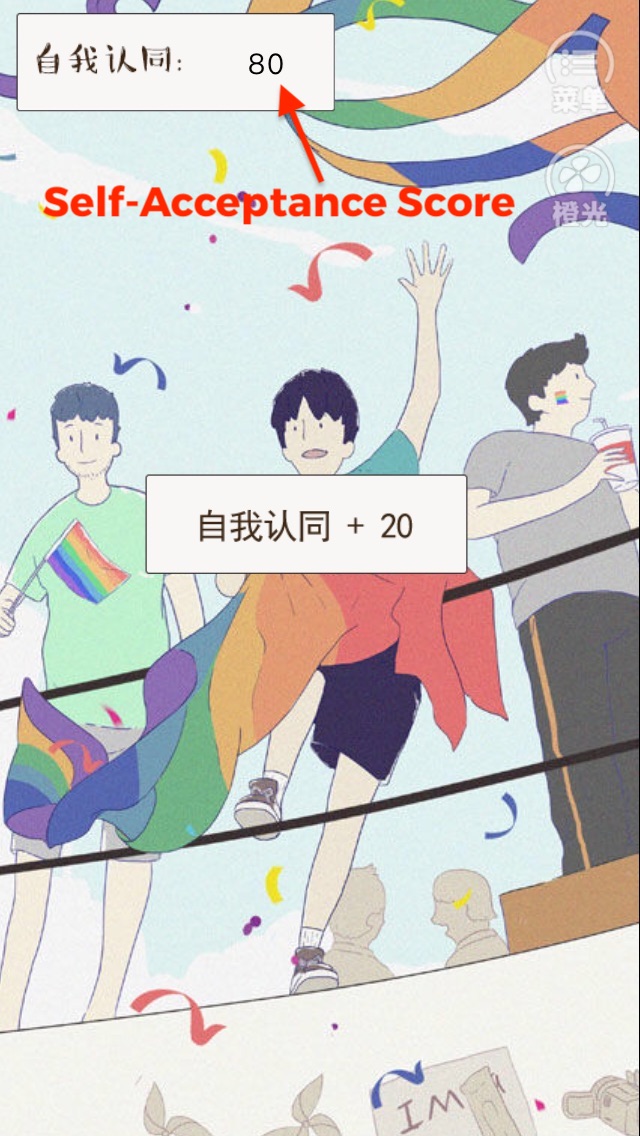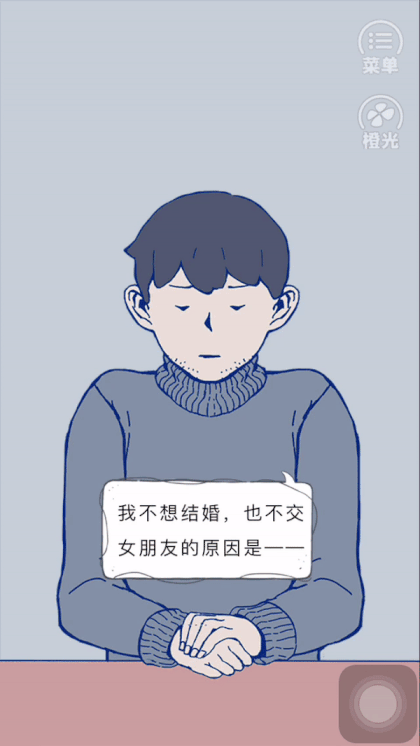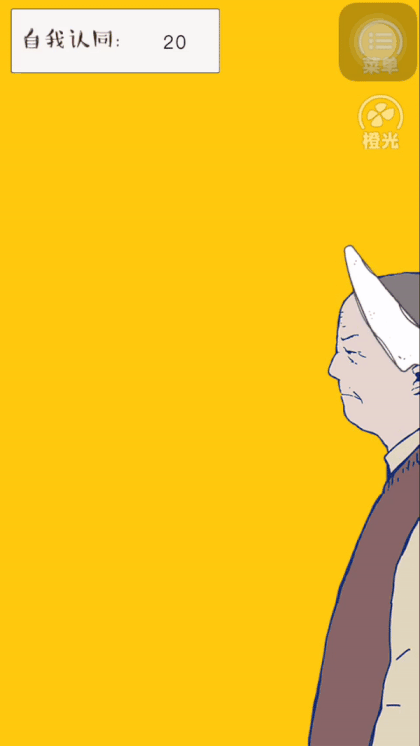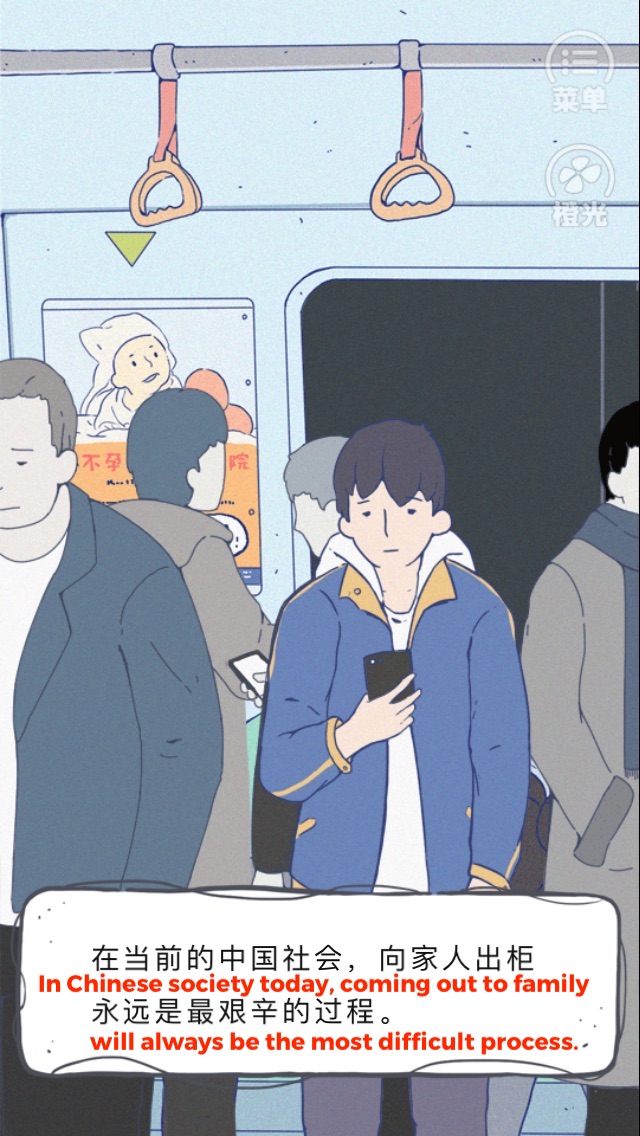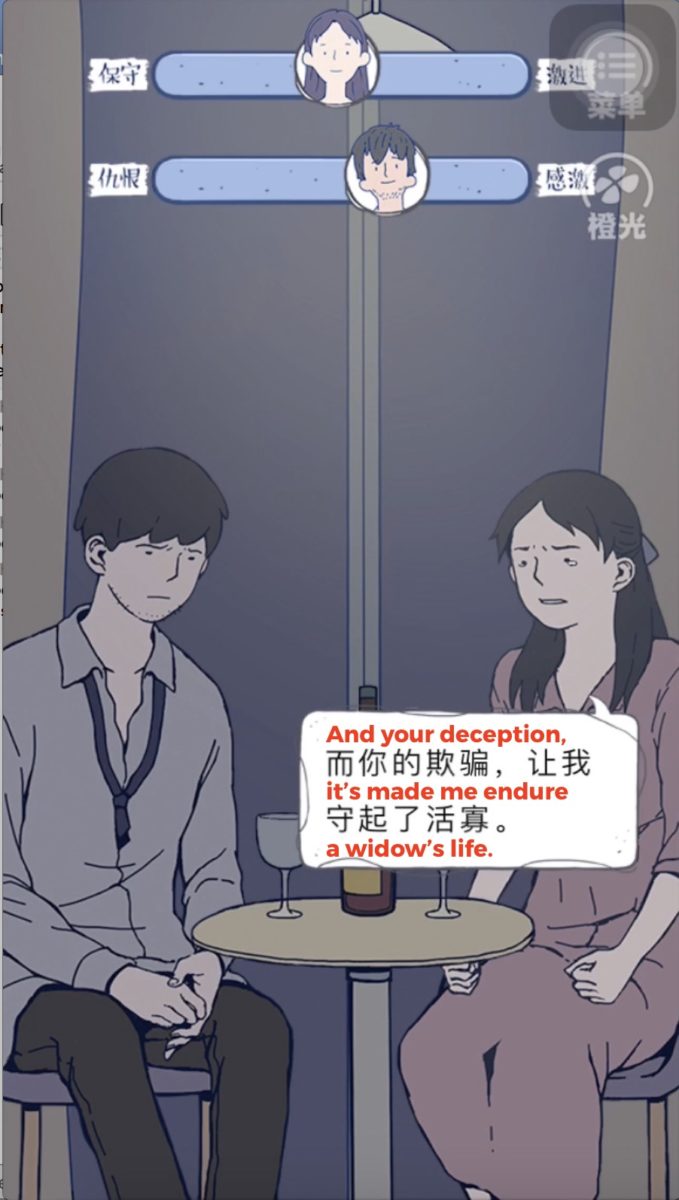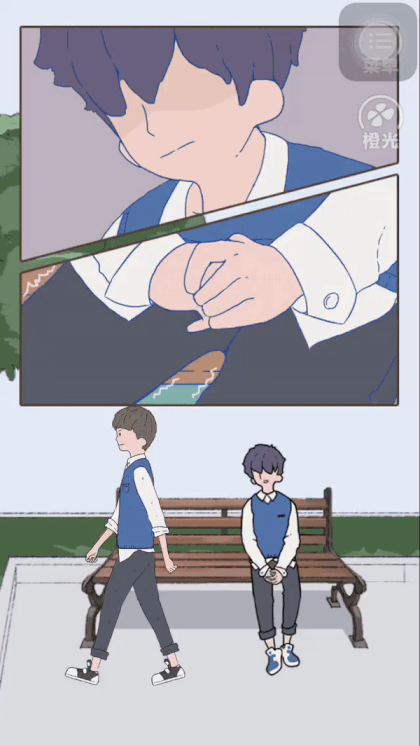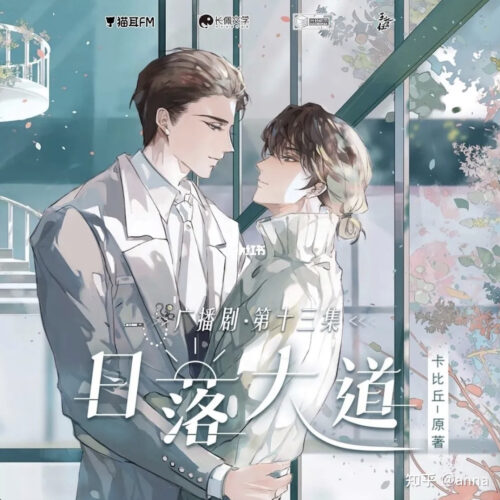‘A Gay’s Life’: First-of-its-kind web game explores LGBT Chinese experience
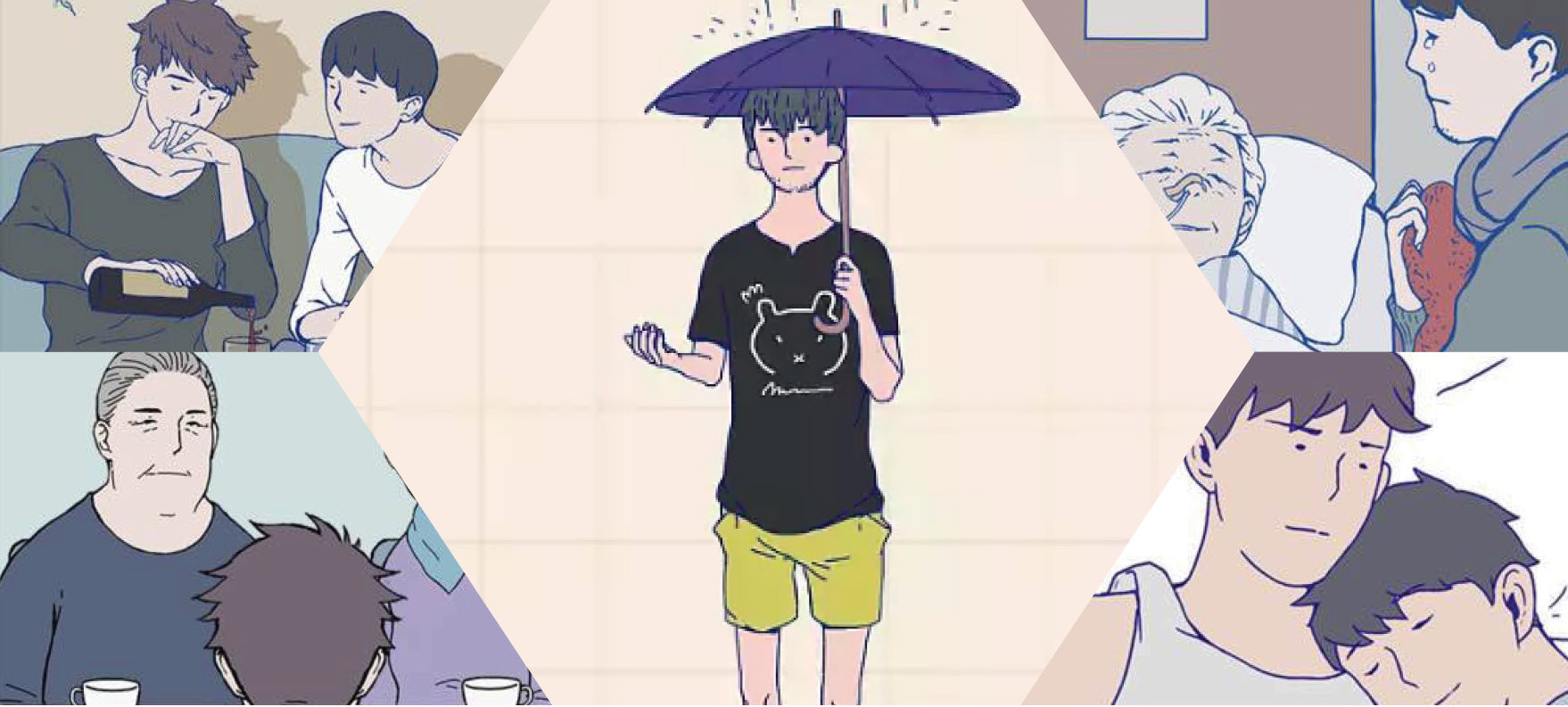
It’s tough being gay and Chinese. An interactive browser game, playable here, takes players through that experience in poignant detail.
Last month, Ken Wong, the acclaimed game designer behind Monument Valley and Florence, sent a tweet that caught my attention: “‘A Gay’s Life’ is a web game that looks inspired by #FlorenceGame but is GAY and CHINESE which is frickin’ awesome! Can someone with better Chinese skills than me check it out and let me know what it’s like?”
"A Gay's Life" is a web game that looks inspired by #FlorenceGame but is GAY and CHINESE which is frickin' awesome! Can someone with better Chinese skills than me check it out and let me know what it's like? 🇨🇳🏳️🌈 https://t.co/W2kF3MBA3l pic.twitter.com/7C1JkI28b9
— ken wong (@kenwongart) October 28, 2018
I answered his call with few expectations. I thought A Gay’s Life, first published on May 4, would be a short fan production that swaps out the protagonist in Florence — self-described as “an interactive story about love and life,” with a young woman at its center — and changes little else. But what I discovered instead was a comprehensive, intimate, and deeply moving journey of a gay Chinese man’s life spanning multiple decades.
A Gay’s Life is like a gamified field guide for living as a gay person in China, the first of its kind to tackle themes of accepting one’s sexual orientation, coming out to friends and family, and navigating gay dating head on. It was created by Harry Huang, who works on a small production team in Beijing and goes by 唐门草楹 (táng mén cǎo yíng) online, who tapped into his personal experience as a gay man to create this game.
Even in the West, where there’s been progress in queer representation in video games, as seen with openly gay protagonists in Gone Home and Last of Us, there’s nothing like this.

“Never been interested in the opposite sex?”
You play as Ling Hao 凌浩, a young gay man from a small town who navigates the perilous waters of a society that doesn’t understand or accept who he is. You are privy to his innermost thoughts as he wrestles with his sexual orientation and tries to make decisions he can live with. Right from the start, the game informs you that “your choices will impact the narrative, choose what feels right.”
Through making major decisions such as coming out to your family or trying an open relationship, you work toward one of nine endings currently available.
When you come across milestone decisions that determine how Ling Hao internalizes his sexual orientation, the game provides copious amounts of detailed supplemental information on the various choices, and cites an impressive range of authoritative sources, teaching players about psychology and the history of homosexuality in China.
Besides Ling Hao himself, various characters also serve as mouthpieces for established perspectives on homosexuality, such as the university therapist who debunks the myth that homosexuality is a mental illness, Ling Hao’s socially conservative uncle who condemns Ling Hao’s “selfish” decision to dishonor his family with his deviance, and Ling Hao’s former best friend who abruptly terminates their friendship after Ling confesses his love.
Though the narrative can drag sometimes as it accommodates thorough explanations about each situation, Ling Hao’s emotionally candid inner monologue and interaction with a rich tapestry of supporting characters vividly depict the challenges that young gay people face. Due to the prevalence of demonizing misinformation on homosexuality in China, the straight majority often adopts a reductive view of gay people, taking for granted that, just like everyone else, they seek happiness in their lives.
A major highlight of the gameplay is its “self-acceptance score” (自我认同 zìwǒ rèntóng), which can be gained or lost depending on Ling Hao’s choices and beliefs.
For example, when Ling Hao comes out to a girl who wants to date him, he racks up 30 self-acceptance points. He picks up 20 more after accepting the affections of a boy for the first time rather than isolating himself in shame.
“Self-acceptance and coming out of the closet were planned very early in the development process, because I recognized the causal effect between the level of self-acceptance and the success of coming out to the family,” Harry Huang told me. “[This was] based on my own experience [coming out], that of people I know, as well as published research.”
All of this builds to the heart-stopping climax, when Ling Hao can choose to come out to his family during a trip home. If he does so, the game launches into the nerve-wracking “Coming Out Interrogation,” featuring four rounds of questioning by various family members that represent “denial,” “anger,” “bargaining,” and “confusion” — responses that, according to Huang, accompany most coming-out scenarios.
Questions hurled at Ling Hao range from, “What have I done wrong to cause you to become this way?” to “Won’t accepting homosexuals to do as they please negatively impact heterosexual relationships?” You are presented with up to six multiple choice responses that either defuse the situation or exacerbate it, all while a timer counts down faster than you can read each choice. A “good” answer will allow you to move forward in the questions with your self-acceptance score intact, while “bad” answers result in a deduction.
I was wholly unprepared for the stress the interrogation put me through, to such an extent that I almost threw up during the process. I skimmed all answer choices as quickly as possible and chose without fully thinking things through, knowing that I would lose five points if the time ran out. My pulse raced, my palms were clammy, and I felt like a trapped animal.
In my first playthrough, I was too slow and Ling Hao lost all of his self-acceptance points, resulting to a trip to Dr. Yang’s clinic, based on a real-life psychiatrist — Yang Yongxin — who made the news for his barbaric methods, treating so-called internet addicts with electroshock therapy. Being forced into shock therapy is a sad reality for many Chinese LGBT people, a point the game brings home by showing Ling Hao tortured daily at the hands of Dr. Yang.
“Older members of a Chinese family are often not swayed by logic, which is why when Chinese people come out, they need to be patient, and appeal to their family’s emotions,” Huang said. “You’ll notice that many of the answer choices in the game are logically watertight responses that the family still can’t accept. What ends up happening is the loss of self-acceptance on the part of the person coming out.”
The way A Gay’s Life addresses the family component makes it relatable for all Chinese players, regardless of sexual orientation. This is because the clash between modern demands and traditional family values is one of the most universal experiences in China today. A woman pushing 30 will have had the same conversation with her parents as Ling Hao about managing her expectations and performing her filial duty to marry and reproduce. The eldest male from his generation of cousins (like Ling Hao) will have been pressured to make his ancestors proud by continuing the bloodline.
A feminist message is folded into the larger narrative about gay life. “If I have to choose, my favorite character from the game is probably Lele, the straight woman Ling Hao marries [in one of the nine possible storylines] to fulfill his duty to his family,” Huang said. “In my research, I realized that in a patriarchal society, heterosexual women from the same social class as a gay man have even less agency. A man can choose to remain in the closet and still enjoy his male privilege, while also causing a woman to sacrifice her happiness to appease his family. In the storyline where Ling Hao marries the straight women without disclosing his sexual orientation, she eventually learns the truth and chooses to divorce him, and that represents the feminist spirit that rejects objectification.”
While the game has drawn criticism for being too politically correct, what struck me was the sympathetic, humanizing light cast on all parties, from the gay men who reject heteronormative standards to even the conservative uncle who forces Ling Hao to undergo conversion therapy. “I’m not trying to convince people to come out, or do anything they don’t want to,” Huang said. “My goal is to explore different options and their consequences. I encourage people to make informed choices.”
A Gay’s Life is currently hosted on Orange Game Center (橙光 chéng guāng), a popular platform for user-generated narratives in different mediums. Its visual style and certain interactive mechanisms are heavily inspired by Mountains Games’ Florence, but it doesn’t reuse any images from Florence, and maintains a high quality throughout.
It also has the blessing of Florence’s creator, Ken Wong.
“I’m really proud of what we achieved in terms of narrative design on Florence, but we’ve just told one story, about one person,” Wong said. “Nothing would make me happier than to see other people use the concepts and techniques we developed to tell their own stories, especially stories from underrepresented voices.”
There are currently no concrete plans for making an English version of A Gay’s Life or publishing it as an indie game, but the power and impact of this game cannot be understated. It can be played here, or in Orange Game Center’s app (download: iOS / Android).
